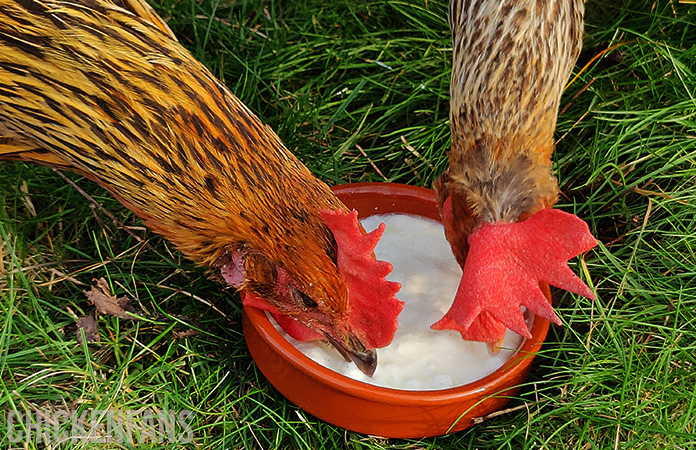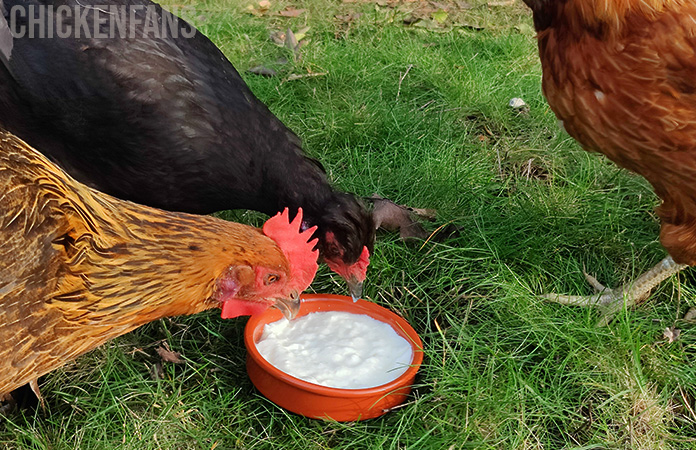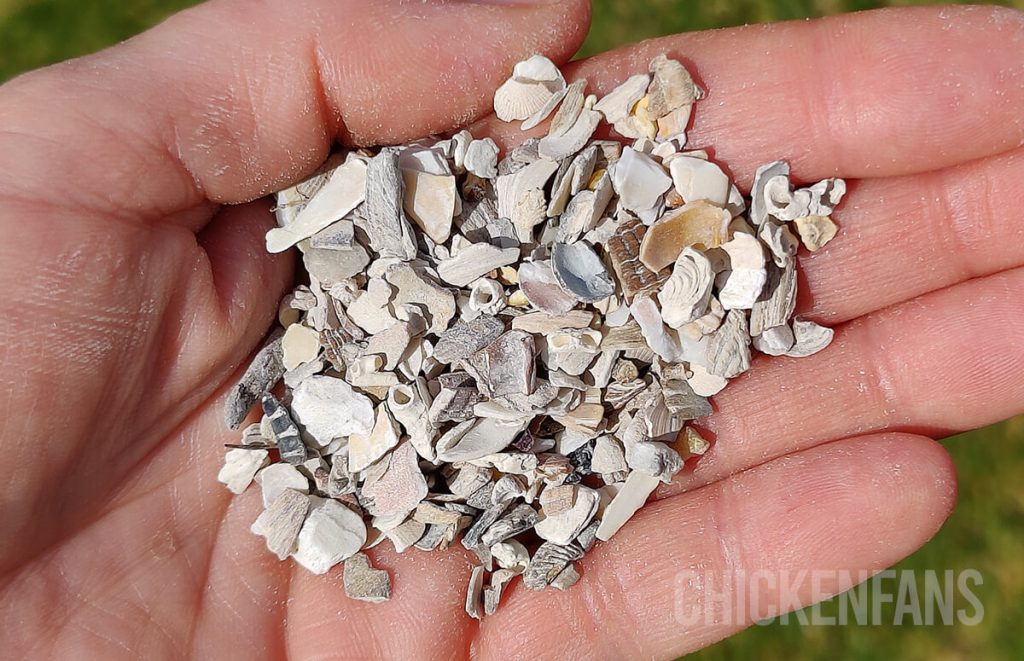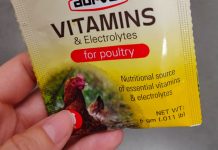Can Chickens Eat Yogurt?


Yogurt is a popular beverage known for its tasty flavor and nutritional value. However, when it comes to chickens, the question arises whether it is appropriate for them to consume it. This article will explore the pros and cons of feeding yogurt to chickens and determine whether it is safe for them.
Can Chickens Eat Yoghurt?
Yes, chickens can eat yogurt, but that doesn’t mean it’s good for them. Chickens are birds, not mammals; their digestive system cannot process dairy products effectively. Only feed your chickens yogurt on rare occasions, and it must be unsweetened and free from added flavors
While yogurt is rich in nutrients and chickens appear to enjoy its taste, it is not a staple food in their natural diet. Chickens’ digestive systems are not designed to handle this dairy product, and consuming yogurt excessively and daily can lead to immediate and long-term negative effects, such as diarrhea, liver disease, weight gain, and obesity.
Yogurt is considered to be a nutritious food as it contains protein, vitamins (B2 and B12), minerals (such as calcium, magnesium, and potassium), and beneficial probiotics. But the potential health benefits of yogurt would only be realized if the chickens consume it frequently and in significant quantities, leading to other negative health effects.

Why is Yogurt Not the Best Food for Chickens?
Yogurt is packed with nutrients and offers various health benefits. Also, chickens enjoy its flavor as they are not particular about their food choices.
However, yogurt is not a normal part of a chicken’s diet, and their digestive systems are not prepared to handle it. Consuming yogurt regularly or in large quantities can lead to both immediate and long-term negative outcomes, such as diarrhea, liver disease, weight gain, and obesity.
Is Yogurt a Good Probiotic?
Yogurt is not the best source of probiotics for chickens as the bacteria present in yogurt do not match the bacteria in a chicken’s digestive system. Yogurt is typically made using Streptococcus thermophilus and Lactobacillus delbrueckii bulgaricus, and sometimes other strains of Lactobacillus and Bifidobacterium.
The most important probiotic for chickens is Bacillus subtilis, and other beneficial bacteria like Lactobacillus acidophilus and Enterococcus feacium, and yeast such as Saccharomyces cerevisiae.
Although there is some overlap between the probiotics in yogurt and those that are beneficial for chickens, it is safer and more effective to use a probiotic supplement specifically designed for chickens rather than yogurt.
To read about the best probiotics suited for chickens, consult our in-depth ‘Probiotics for Chickens‘ article.
Do Chickens need Probiotic Supplements?
Yes, chickens need probiotics. Probiotics support the gastrointestinal system and promote overall health. Probiotics populate the GI tract and crowd out bad bacteria such as Escherichia coli, Clostridium, and Salmonella.
Is Yogurt a Good Calcium Source for Chickens?
Yogurt is a good source of calcium, but it’s not ideal for chickens. While eating large amounts of yogurt could provide a calcium boost, it can also cause diarrhea.
Better calcium sources for chickens include oyster shells, limestone, bone meal, diatomaceous earth, and calcium carbonate. Chickens need calcium for good health and to lay eggs with strong shells.
Read our in-depth ‘Calcium for Chickens‘ article to find out more.

Can you Use Yogurt to Flush a Chicken’s Crop?
In the case of sour crop, it is possible to use a combination of yogurt and apple cider vinegar; however, probiotics are the preferred option if available. In case of an impacted crop, only use water or olive/vegetable oil.
Sour crop is a common yeast infection in chickens that occurs when the microorganisms in the crop become imbalanced, leading to the overgrowth of Candida species.
Related Questions
Yes, chickens can eat Greek yogurt. However, ensure the feeding is in small amounts and on rare occasions. Like all dairy products, Greek yogurt is high in fats and calories, and if overfed likely to cause diarrhea.
Yogurt is considered a treat – the safe amount is no more than half a cup once or twice per week. Remember, the yogurt must be unsweetened and free from added flavors.
There is no scientific proof that eating yogurt results in better eggs. While it is true that yogurt is rich in protein and calcium (both necessary for quality eggs), egg production is still a complex process that depends on many factors. Plus, too much yogurt can be harmful to chickens.
Yes, chickens are lactose-intolerant because they do not have the enzymes necessary for breaking down lactose into its main simple sugars – glucose and galactose. However, the term is not popularly used in birds.
Further Reads
Can Chickens eat?
- Milk and dairy products – learn about why this can be dangerous
- Mango – we discuss whether chickens can eat sweet mango
- Oranges – the benefits and risks of feeding oranges to your flock
- Strawberries – power food for humans, but what about chickens?
- Grapes – the pros and cons of feeding grapes to chickens
Some other reads:
- Can chickens eat and taste spicy food – here we discuss the taste of chickens
- Can chickens eat onions – the risks and how onions are used as poultry supplements
- Can chickens eat chocolate – several variants of chocolate are toxic to chickens
- Can Roosters eat layer feed – what food is best to give to roosters?
Some articles we mentioned here:
- The chicken digestive system – how chickens digest their food
- The chicken respiratory system – how chickens breathe and why it’s so different from how we breath
If you want to learn more about chicken feed, please consult our ‘Chicken Food Page‘ to go and see every specific food article we address, including all articles on what chickens can and can not eat. Or go to our listicle food summary on ‘The Classroom‘.

Dr. I. Crnec is a licensed veterinarian with several years of experience. She has published work on the effect of vitamin supplementation, egg-laying performances of chickens under heat-stress conditions and the effects of calcium supplementation on eggshell strength.























